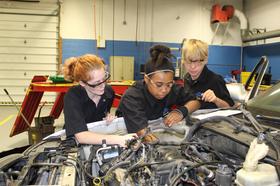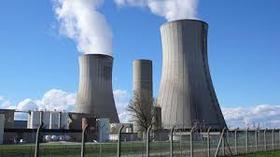Although they were once known primarily for their vocational programs and associate degrees, community colleges have expanded their programs to serve a wider audience. And while community colleges still do an outstanding job of fulfilling their original roles, community colleges have now become a center for scientific and engineering learning.
In fact, in recent years, according to the National Science Foundation (NSF), more students have turned to community colleges to prepare them for a career in science and engineering. Research from the NSF study reveals interesting reasons why students begin their careers at a community college.
Many scientists and engineers begin at community college
Community colleges are, without a doubt, great schools. They offer many different types of programs for a wide range of academic interests. Truthfully, it is no longer fair or even accurate (if it ever was) to think of them as an “easy” two-year school for those looking to earn an associate’s degree.
Today, according to the NSF, less than 30% of community college students are looking to simply earn an associate’s degree. This means that over 70% of the students attending community colleges are looking for more than just a two-year program. These statistics reveal that many people view community colleges as a viable option when beginning their educational careers.
In fact, according to the NSF, 44% of students who earn bachelor’s and master’s degrees in the physical sciences, computer and mathematical sciences, and engineering started their education at a community college.
What these statistics reveal is that a larger number of students believe they can build a solid educational base at a community college, whether they are studying the sciences or engineering. A recent survey of community college students backs up this idea. When asked, 74% of community college students said they attended the community college to earn credit towards a bachelor’s degree, and 50% of students indicated they attended community college to gain further skill and knowledge in an academic or occupational field. In contrast, earning an associate’s degree ranked sixth out of nine possible reasons to attend a community college.
Again, attending community college is becoming a very popular stop on many students’ educational journeys. When you break down the numbers even further, it becomes very clear how well community colleges are setting up students for success in either a science-related career or an engineering career, and why more and more students are turning to community colleges for that initial base of learning.
Equalizing the science field for all students
Race is, without a doubt, a topic of much discussion in colleges and universities across our nation. America is, after all, the land of the free, and we pride ourselves as a country that offers an opportunity to all. However, as a nation, we haven’t always lived up to the standard we set for ourselves many years ago. At community colleges, though, many “color barriers” are being shattered, especially when it comes to students looking for a career in a scientific or engineering field.
On average, community colleges do an excellent job recruiting and preparing minority science and engineering students for success in the post-collegiate world. In fact, 50% of surveyed Hispanic science and engineering graduates attended community college before receiving their bachelor’s or master’s degree.
While that number is impressive (and one in which community colleges should take pride), it does not stop with Hispanic students. When asked, 45% of American Indian/Alaskan Native graduates reported attending a community college first, and for African Americans, it is 44%. Whites comprised 43%, and Asian/Pacific Islander students made up 40%.
Of course, people should not be defined by their race. It is unfair to do so. Yes, community colleges do serve and prepare minority students exceptionally well, but in fairness, they serve all students exceptionally well. In fact, a high percentage of older students who went on to earn degrees in science or engineering (or to work in related fields) reported first going back to school at a community college. The same holds true for science and engineering students who were divorced, separated, or widowed. And finally, science and engineering students whose parents did not attend college felt that going to a community college first was the best way to start their educational careers.
This video reports on the applied engineering program at Johnston Community college.
Conclusion
There are numerous other reasons why community colleges are an excellent choice for science and engineering students. Many have low tuition costs, are closer to home, and offer open enrollment. Clearly, these are all attractive qualities, and community colleges appeal to many students – not just scientists and engineers. Without a doubt, community colleges are a viable, successful option for science and engineering students.
Questions? Contact us on Facebook. @communitycollegereview















